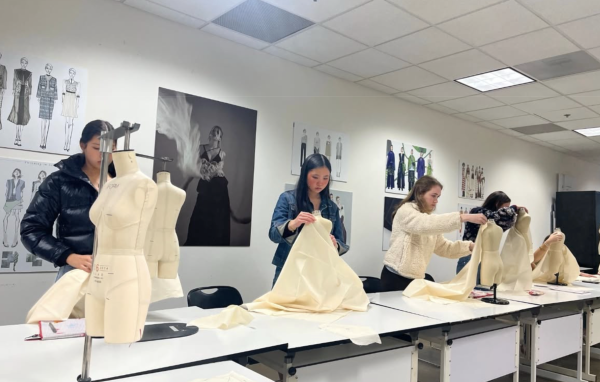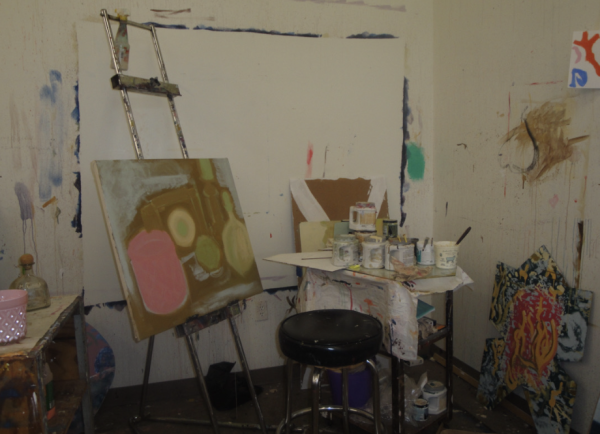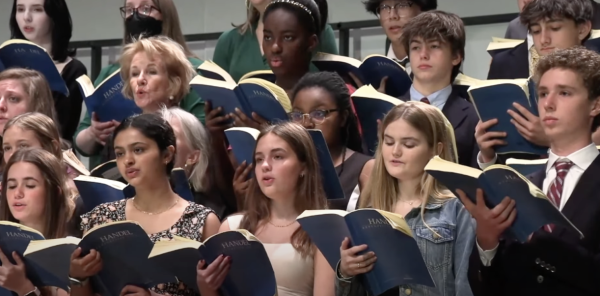Surviving R. Kelly documentary sparks newfound awareness of sexual assault
Since the release of the the documentary Surviving R Kelly, society proves more aware than ever of the reality of sexual abuse in today’s world. The series of interviews sparked cultural respondents to rape culture and sexual harassment, focusing on the reemerging accusations of the Robert Kelly. Kelly refuses to claim any of these acts as his own, but numerous pieces of evidence from family members and victims suggest otherwise.
Executive produced by cultural critic and filmmaker Dream Hampton, the documentary serves as an opportunity for women to come forward and share their story. Lifetime network labeled the series as “their commitment to provide a platform to give women a voice where they have previously been unheard to bring awareness to the abuses and harassment of women.”
The documentary itself contains six parts, airing on Jan. 4, 5, and 6 on Lifetime. Despite the now public accusations of Kelly’s sexual abuse, the television network reports that he is unphased and none of the accusations have affected him. While victims of all ages and ethnicities have come forward, forming a total of 50 interviews featured in the documentary, it focuses on his targeting of underage African American girls.
Statistics show that Kelly’s intentions involve singling out girls of this age and race due to historical events in which black women have been ignored. In addition to this, other reasons for his actions include the fact that the singer identifies himself as a staple in the black community.
Saige Haynes, leader of BRIDGE, highlights the significance of his music to
African Americans, falling under two categories. Many of his songs are “black anthems,” which one would listen to on the way to church. The rest were extremely perverted and Haynes recalls not realizing this during her childhood.
As highlighted in the documentary, Kelly formed a pattern in his assault tactics that he continues to follow through with. In addition to both physical and verbal abuse, he uses a psychological strategy in which he toys with the victims mind, making them feel as if he cares for them more and that his opinion holds precedence over those who may try to convince the girls to leave him. Though never accused of holding a girl against her will, he has been accused of punishing the girls in ways such as denying them food and removing all ties with their families.
“We often look at women and we blame them,” said clinical psychologist Dr. Jody
Adewall. “We say all you have to do is leave, all you have to do is walk out but its not that simple. There are psychological blocks throughout the whole situation that stops them from leaving.”
Kelly’s ex wife recalls not wanting to live another day in Kelly’s house. Explaining her state as “even willing to leave my babies,” the survivor climbed over the railing of a balcony, considering suicide. Praying for a sign from God, she scrolled to a questionnaire at the bottom of a domestic violence awareness website.
Of the 17 questions the site asked to determine if a partner is abusive, which may have included things like ‘Do you feel anxious or nervous around your partner?’ and ‘Do you feel obligated or coerced into having sex with your partner?’ Kelly’s ex wife said, “Robert had done 15 to me.”
One survivor in particular, Jerona Pace, also emphasizes reality of the gradual realisation of her abuse, explaining that strict rules under which she was expected to conform to. Pace quotes a dialogue previously spoken between Kelly and herself in which he told her to call him daddy. “And I said ok, and he said ok what? And I said ok daddy,” said Pace.
These allegations greatly affected Kelly’s daughter, Joan Kelly, now known as Buku Abi, who currently sides with the alleged victims. Abi explains the reason why she has failed to speak out against him in past allegations. Abi even refers to him as a monster, calling herself well aware of the situation having grown up in his household.
“It has been very difficult to process it all… let alone gather all the right words to express everything I feel”, wrote Abi on instagram.
In addition to Abi’s confessions towards her father, other public figures have spoken out against him. American singer, songwriter, and actress Lady Gaga recently announced the removal of Do What U Want (With my Body), a duet with her and Kelly, from streaming platforms as an apology for working with him. Supporting anyone who suffers from sexual abuse, Gaga relates to their victimization of this predatory behavior.
“This has been been a problem for years and people have been, you know, noticing it for years but we haven’t had this extreme backlash until now and that’s thanks to this whole cancel culture,” said Haynes.
Acquitted on 21 accounts, Kelly continues pursuing music, but active protests share the goal of treating him differently, starting with the deprivation of major promotions. The #muteRKelly movement shares the goal of convincing Kelly’s record label, streaming services, and ticket resales to consider breaking ties with the singer as a result of the allegations of sexual impropriety. Though major news sites consider the movement a work in progress, Kelly currently faces eviction from Chicago Studio due to unpaid bills and a woman participating in the documentary.
These proclamations of support from celebrities as well as the broken silence of victims leaves society considering the evolution of sexual assault since the #metoo movement in 2016. Students from Westminster offered that they feel the movement is both helping and hurting the community. On one hand the movement helps empower women, encouraging them to speak up for themselves. However, others find the number of women coming forward as victims unrealistically large.
“It’s empowering people to speak up because they feel like they will be given that platform but on the other hand a lot of people are like this many people can’t be getting assaulted so I’m not gonna take you seriously,” said Haynes “People are taking it two different ways.”
Despite the backlash, it is evident that celebrities shared a major role in the advertising of this movement. By simply endorsing the movement on the red carpet, a wall was torn down and people immediately began feeling encouraged to share their stories rather than ashamed, which was a major step in recognizing the issue of sexual harassment as a whole.
“A lot of these figures who are prominent in our culture started to speak out. Celebrities speaking out, that really had an impact on the world,” said junior and co-leader of GEAR Annie Kong. “That’s who people look up to and that’s who has an influence over the media.”



